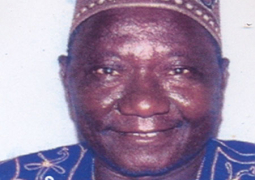Mod K Ceesay, the deputy permanent secretary at the Ministry of Finance and Economic Affairs, recently led a nine-member delegation to Rome, Italy, to negotiate for the National Agricultural Land and Water Management Development (NEMA) on behalf of the Gambia government.
The negotiation, according to the head of delegation, went “well”, noting that the background work was done before the negotiation through an eight month intensive consultative and participatory design process that was mounted by the International Fund for Agricultural Development (IFAD).
The team comprised IFAD three project coordinators and a financial controller - Rural Finance Project, the Participatory Integrated Watershed Management Project, Livestock and Horticulture Development Project, ministry of Justice, Agriculture, Finance and Economic Affairs and the farmers’ organisation.
In an interview with local journalists in his office on Friday 9 November in Banjul, Ceesay said the NEMA project’s overall goal is to sustainably increase food security, and raise income of smallholders, particularly rural women and youth, by improving rice and vegetable production through land and water management practices.
He went on to state that the design missions led by Moses Abukari of IFAD for the eight months gave both the government and IFAD the opportunity to identify key components of the project, which are aligned to the Gambia National Agricultural Investment Plan (GNAIP).
“We were basically in Rome, to fine tune some of what we have already mutually agreed on at the appraisal stage of the project”, Ceesay said, adding that at the negotiation, “both parties found it tough as partners and colleagues to convince each other”, but was quick to state that at the end of the day they reached mutual agreements.
According to him, the NEMA project is one of the biggest project interventions of IFAD in The Gambia, noting that “US$34 million is not a small project”.
Ceesay pointed out that since 1982 to date, IFAD has pumped hundred of millions of dollars to finance nine projects through loans and grants.
“Honestly, IFAD is one of our most reliable and beneficial partners, and their intervention areas have been supporting rural farmers globally including in The Gambia, as the government has a strong and special relationship with IFAD”.
The Gambia, DPS Ceesay disclosed, depended heavily on agriculture, as it constitutes seventy percent of the employment sector, particularly for youth and women.
These, he went on, shows how important the sector, as stated in all government policies and programmes.
The NEMA project, he continued, is in line with the goals and objectives of the GNAIP.
Momodou Gassama, project coordinator PIWAMP, added that “the NEMA project is targeting all the six agricultural regions in the country, and it will focus on women and youth to enable them participate more actively in development initiatives.”
Fatou Samba Njai, president of the Women’s Wing NACOFAG, said “the farmers were fully involved in the design of the NEMA project”, while acknowledging the support IFAD has been giving to Gambian farmers over the years.
Lamin Fatajo the project coordinator of Rural Finance Project, Lamin AD Sanyang the project director of Livestock and Horticulture Development Project, and Noah Kujabi, former projects coordinator, Central Projects Coordinating Unit-MoA all acknowledged the success of the negotiations.
Read Other Articles In Article (Archive)


